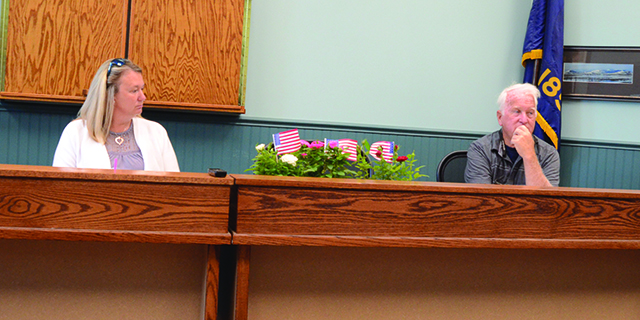Wandschneider All in my family
Published 6:00 am Wednesday, January 22, 2020
When “All in the Family” hit the TV screens in 1971, the war in Vietnam was raging, cities from Washington, D.C. to Detroit were charred from riots in the wake of Martin Luther King’s assassination and I and many of my cohorts were leaving those cities, dropping out of colleges, coming home from war — and moving to rural America. They called it the “back to the land” movement. Archie Bunker called it all humbug — or something like that — while daughter Gloria and son-in-law “Meathead” tried to explain integration, antiwar protests and a fledgling women’s movement.
I and my kind chuckled with Meathead as he was skewered by Archie, who got chuckles from our dads. But we were all done watching “Leave it to Beaver” and “Ozzie and Harriet.” The world had changed, and we knew that “Beaver” did not represent it — if it ever truly had.
Trending
Well, the family has changed again and, I’d argue, my own humble family is closer to what’s happening in America now than either the Beavers’ or the Bunkers’ TV versions of the standard American family is — or was.
In 1965, I dropped out of graduate school to join the Peace Corps, and spent most of the next five years in Turkey. Excepting much of an interim year, from late 1967 to summer of 1968, when I lived in Washington, D.C., worked at Peace Corps headquarters and lived with protests, riots, curfews and National Guard troops in my front yard.
I’d grown up in Minnesota and California, child of immigrant families from Germany and Norway who’d come in the late 1800s. In Turkey I met a Peace Corps Volunteer from Pennsylvania whose own family roots traced to Italy and Poland. We married in D.C. and moved to Wallowa County, Ore., in 1971 — as Archie was hitting the airwaves.
Vietnam went on. And international adoption services, like Holt International, which had begun with mixed race children of American G.I.s after the Korean War, began bringing mixed-race Vietnamese children to the U.S. And then expanded to bring children from India and Central America who were available not because they were spurned in their home countries because of their racial mix, but because they were poor and given up by desperate parents. Even simple adoption of white children had become more open; historically it was hush-hush with unmarried mothers going to visit aunts and doctors quietly arranging adoptions.
We first adopted a Caucasian boy who had been born in New Jersey and brought to Oregon by a mom too young and poor to raise him. After a few years, thinking back to our Turkey years, we decided to internationalize the family, and we adopted a boy from India.
We thought all we needed was love to bring these kids into the American mainstream in rural Oregon. We didn’t realize that adopting a one year-old and then a boy from India — given an approximate age of 6 — meant having kids with trauma in their pasts — and we certainly didn’t imagine that being brown in Wallowa County would be hard.
Trending
It wasn’t, for a while, but then as kids got older the unconscious racial slurs and attitudes surfaced. Our boys went on to other places, and the white boy married a woman whose father was in Vietnam and mother is Filipino! The brown boy had babies in Portland, and I ended up raising a mixed race — India-Indian and Scandinavian American — boy and a girl here. Again, early years were easy, and again unconscious racial slurs in school hallways and on athletic fields made their high school years hard.
Their father has found a life and a wife in Phoenix, Ariz. She is an immigrant, too, from Uganda, and they and their 2-year-old son came to visit at Christmas. There was some apprehension on all sides — if brown gets notice here in Wallowa County, what will the locals do with this new Indian-African black family?
It all worked. The 2-year-old stole everyone’s hearts and the grandkids I raised are, I think, beginning to understand their father’s hard journey. Their own journeys as adults are just beginning, but they have more knowledge and tools to deal with the changing world than I think I did almost 50 years ago, when my own adult family drama began.









